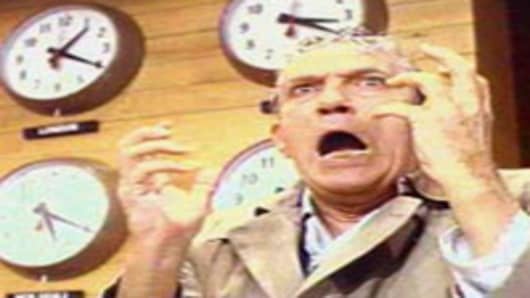A chart in a print ad shows how fares are lower on fee-free Southwest than on other airlines. “What have they been smoking?” the headline asks, referring to the rivals. “Apparently, your rolled-up $20s.”
The goal was “to do something disruptive” that reflects the frustrations of fliers, said Derek Pletch, vice president and group creative director at Idea City, part of the Omnicom Group.
•
The campaign has an edge to it, Mr. Pletch acknowledged, but it also has “an empathetic tone that tells them, ‘We understand what you’re going through.’ ”
That edge is also seen in a Harley-Davidson campaign, created by Carmichael Lynch in Minneapolis, part of the Interpublic Group of Companies. “We don’t do fear,” asserts a headline on a print ad, which is laid out to resemble the American flag.
“Over the last 105 years in the saddle, we’ve seen wars, conflicts, depression, recession, resistance and revolutions,” the ad begins, referring to the founding of Harley-Davidson in 1903. “We’ve watched a thousand hand-wringing pundits disappear in our rearview mirror.”
“But every time, this country has come out stronger than before,” the ad goes on, before concluding that the right response to the national mood ought to be, “Let’s ride.”
The genesis of the ad was “listening to our rider,” said Scott Beck, director for advertising and promotions at Harley-Davidson in Milwaukee, particularly those who have bought motorcycles recently.
“Clearly, there’s a history of an unconventional attitude that is core to us as a brand,” he added. “That’s why we felt so strongly about it.”
The response to the campaign has been “tremendous,” Mr. Beck said, listing examples like the more than 21,000 comments left on the Harley-Davidson Web site (harley-davidson.com) and the distribution by dealers of bandanas and T-shirts bearing the text of the ad.
The campaign for Versus, a cable network owned by the Comcast Corporation, is intended to draw viewers to the network’s coverage of the Tour de France bicycle race, which starts July 5.
The “Take back the Tour” campaign, by a New York agency named the Concept Farm, addresses the damage to the race from scandals that involved performance-enhancing drug use by leading cyclists. After dismissing “the dopers, politics and critics” because “they ripped the soul out of this race,” the ads — in print, online (takebackthetour.com) and on T-shirts — declare the tour belongs not to them but to the fans.
The campaign “makes a blunt statement,” said Griffin Stenger, partner and creative director at the Concept Farm, to persuade viewers to “identify with that attitude of ‘Yeah, I feel that, too; I’m sick of all the negativity.’ ”


